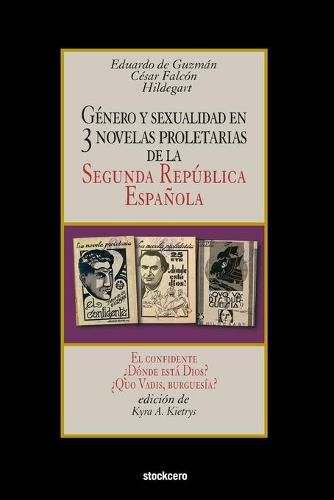Readings Newsletter
Become a Readings Member to make your shopping experience even easier.
Sign in or sign up for free!
You’re not far away from qualifying for FREE standard shipping within Australia
You’ve qualified for FREE standard shipping within Australia
The cart is loading…






This title is printed to order. This book may have been self-published. If so, we cannot guarantee the quality of the content. In the main most books will have gone through the editing process however some may not. We therefore suggest that you be aware of this before ordering this book. If in doubt check either the author or publisher’s details as we are unable to accept any returns unless they are faulty. Please contact us if you have any questions.
As Europe was falling into the grip of Hitler and Mussolini in the early 1930s, Spain was ousting its monarchs and dictators and moving towards a period of democracy. This brief moment of progressive political and social change was Spain’s Second Republic (1931-1936). During the Spanish Second Republic, a series of affordable and accessible works of fiction–proletariat novels–was published to introduce radical political ideas to the working class. This critical edition presents three notable proletariat novels, chosen not only because of what they can teach today’s reader about Spain’s political history, but also because they lay bare early 20th century notions of gender and sexuality. El confidente by Eduardo de Guzman offers a traditionally masculine understanding of friendship and loyalty. ?Donde esta Dios? by Cesar Falcon reveals the plight of apolitical working-class women and working-class men committed to the proletarian cause. ?Quo Vadis, burguesia? by Hildegart presents the themes of homosexuality and women’s sexuality. The edition opens with an introduction to the period, the genre, and the authors. It also offers over a hundred contextual notes that explain historical references and offer insight into the representation of gender roles. The volume closes with suggestions for student engagement and further study.
The publication is written for students and scholars of Hispanic Studies and Gender & Sexuality Studies. Those interested in European history, European politics, and Memory Studies will also find it to be a valuable resource.
$9.00 standard shipping within Australia
FREE standard shipping within Australia for orders over $100.00
Express & International shipping calculated at checkout
This title is printed to order. This book may have been self-published. If so, we cannot guarantee the quality of the content. In the main most books will have gone through the editing process however some may not. We therefore suggest that you be aware of this before ordering this book. If in doubt check either the author or publisher’s details as we are unable to accept any returns unless they are faulty. Please contact us if you have any questions.
As Europe was falling into the grip of Hitler and Mussolini in the early 1930s, Spain was ousting its monarchs and dictators and moving towards a period of democracy. This brief moment of progressive political and social change was Spain’s Second Republic (1931-1936). During the Spanish Second Republic, a series of affordable and accessible works of fiction–proletariat novels–was published to introduce radical political ideas to the working class. This critical edition presents three notable proletariat novels, chosen not only because of what they can teach today’s reader about Spain’s political history, but also because they lay bare early 20th century notions of gender and sexuality. El confidente by Eduardo de Guzman offers a traditionally masculine understanding of friendship and loyalty. ?Donde esta Dios? by Cesar Falcon reveals the plight of apolitical working-class women and working-class men committed to the proletarian cause. ?Quo Vadis, burguesia? by Hildegart presents the themes of homosexuality and women’s sexuality. The edition opens with an introduction to the period, the genre, and the authors. It also offers over a hundred contextual notes that explain historical references and offer insight into the representation of gender roles. The volume closes with suggestions for student engagement and further study.
The publication is written for students and scholars of Hispanic Studies and Gender & Sexuality Studies. Those interested in European history, European politics, and Memory Studies will also find it to be a valuable resource.